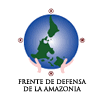US Rep. Linda Sanchez, Environmentalist Trudie Styler & Human Rights Activist Kerry Kennedy Criticize Chevron For Failing to Address Ecuador Disaster and Challenge Chevron To Act

Amazon Defense Coalition
3 December 2009 - FOR IMMEDIATE RELEASE
Contact: Karen Hinton at +1.703.798.3109
Washington, DC – Three leading female environmental and human rights advocates – Congresswoman Linda Sanchez (D-CA), Trudie Styler, co-founder of the Rainforest Foundation with husband Sting, and Kerry Kennedy, President of the Robert F. Kennedy Center for Justice and Human Rights – have issued independent calls for Chevron to clean up the company's Ecuador environmental disaster on the eve of a court judgment where the oil giant faces a potential $27 billion liability.
The three leaders in recent weeks have used high-profile settings such as the United Nations General Assembly and the U.S. Congress to blast Chevron's failure to clean what experts believe is the worst oil-related contamination on earth. Texaco (which Chevron bought in 2001) is accused of deliberately dumping more than 18 billion gallons of toxic waste into the Ecuador's Amazon rainforest when operating more than 350 well sites from 1964 to 1990, or 30 times more oil than was spilled in the Exxon Valdez accident.
A final judgment is expected in 2010 in an Ecuador legal case brought against Chevron by dozens of indigenous and farmer communities living in the area of the Amazon impacted by the oil company's contamination. A court-appointed Special Master estimated damages at up to $27.3 billion, making the case potentially the largest environmental damages matter ever.
The lawsuit asserts that the contamination has decimated the traditional cultures of five indigenous groups and that more than 900 toxic waste pits built by Texaco continue leaking poisons into streams and groundwater relied on by the local population for drinking water. The contamination created severe adverse health consequences for women in particular, including a dramatic rise in uterine cancer and spontaneous miscarriages, according to evidence at trial.
Styler received sustained applause from hundreds of diplomats in the U.N. General Assembly after a stirring speech on climate change in which she singled out Chevron's Ecuador problem as an example of how irresponsible behavior can devastate the environment and contribute to global warming.
Speaking Nov. 19 in support of the upcoming UN Climate Change Conference, Styler accused Chevron of destroying what was once a "paradise on Earth" in Ecuador by employing drilling practices which had been outlawed in the United States since the 1930s. Styler, who has partnered with UNICEF to deliver clean water to the Amazon communities, was accompanied on the dais by UN Secretary General Ban Ki-moon.
"That region [of Ecuador where Chevron operated] is now described by independent assessors as one of the most contaminated industrial sites in the world," Styler said. "On my visits to the region, I have spoken to mothers who know that the water they give their children to drink is poisoned but they've simply had no choice.
"I met Maria Garafolo, a 38-year-old mother, who has cancer of the uterus. Her 18-year-old daughter, Sylvia, has cancer of the liver. They showed me the stream where they collect their water. It stinks of petroleum. Nothing grows there. The animals they rear to sell at market die in the toxic environment."
Rep. Sanchez blasted Chevron in testimony before a committee of the U.S. Congress on Nov. 17 for engaging in a political campaign to quash the Ecuador legal case. She noted that Chevron has hired lobbyists to persuade the Congress to cancel Ecuador's trade preferences as "punishment" for allowing its citizens to sue Chevron in their own courts.
Sanchez said the area where Texaco operated in Ecuador "struggles to deal with an environmental and humanitarian crisis" and cited evidence that more than 1,400 residents have died of cancer due to the contamination.
"...Birth defects are prevalent, and the region suffers from water contamination, rainforest deforestation, and ecosystem degradation," she said
"Instead of allowing this case to come to a conclusion, embarking on clean-up efforts, or even seeking mediation, Chevron has engaged in a lobbying effort that looks like little more than extortion. Apparently, if it can't get the outcome it wants from the Ecuadorian court system, Chevron will use the U.S. government to deny trade benefits until Ecuador cries uncle," Sanchez testified.
Kennedy, who visited the affected area this past October and who debated a Chevron spokeswoman on CNN, wrote in the Huffington Post: "I had heard about what has been called 'Chevron's Chernobyl in the Amazon' for years. But nothing could prepare me for the horror I witnessed.
"I met a man who told me his two children died after swimming in contaminated water. One died within 24 hours," wrote Kennedy, who is chair of the Amnesty International USA Leadership Council. "The other writhed in agony for six months before his poor body gave way.
"I saw a poisonous pit abandoned by Texaco in 1974 and never used by any other company. The pipes leading from that pit have clear liquid running from them. When I put that liquid to my nose, it smelled like gasoline. It runs directly into an adjoining stream, which is the main source of drinking water for people who live along its banks.
"Texaco knew people would die because of what they were doing, and they ignored it... This is an issue of human rights - clear violations [by Chevron] of the indigenous Ecuadoreans' rights to life, security, and self-determination."